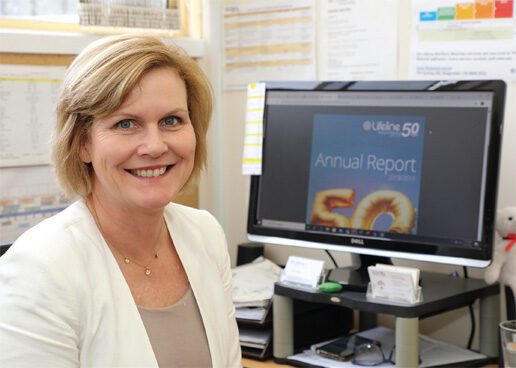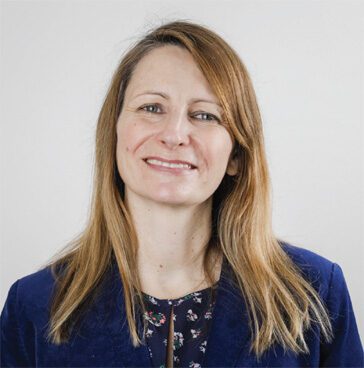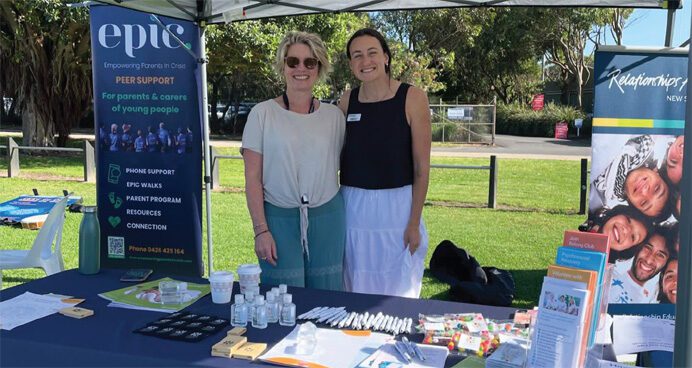Victims of elder abuse can contact Lifeline for confidential support and advice on 13 11 14
Elder abuse remains significantly under-reported despite its growing prevalence across Australia. With the 65+ age bracket tipped to double in the coming years, urgent attention is needed to stamp out this hidden issue. Catherine Lewis reports
An uncomfortable truth is lurking within our communities. Elder abuse – the intentional mistreatment, neglect or exploitation of older people and adults with disability, by a trusted person – is on an alarming trajectory. Government figures find almost one in six older Australians are experiencing abuse each year. Couple this with Australian Bureau of Statistics estimates that the 65+ age group will more than double over the next 20 years, and effective and immediate action is needed to turn the tide.
Over the last five years, elder abuse reports to the NSW Ageing and Disability Commission (ADC) have shot up by 108%, and the ADC Abuse Helpline fielded 24% more calls in 2023/2024 than the year prior. These mainly related to psychological and financial abuse and neglect. Cost of living pressures, rising life expectancies and heightened awareness are behind the rise, says the ADC. The issue is getting more prominence, with the Federal Government’s 2024 ‘Ending the abuse of older people begins with a conversation’ campaign, and the annual World Elder Abuse Awareness Day, to be held this year on 15 June, helping spread the message.
Inheritance impatience – a sinister new phenomenon spawned by sandwich-generation adult children juggling jobs, mortgages, elderly parents and childcare – is deepening the rot. More than half of all reports to the Abuse Helpline are now linked to adult children, with theft, coercive financial control, or levying grandchild access against a payout, named by 20% of callers. “There has been a significant and continuing increase in reports about abuse, neglect and exploitation of older people in NSW,” Kathryn McKenzie, ADC director, operations tells Peninsula Living Pittwater.
“We know that this is partly related to a growing awareness in the community, but it is important to recognise that, in many cases, the abuse is not new. What is positive is that we are seeing concerned community members, and older people themselves, increasingly recognising that abuse is never acceptable, and seeking help and advice.”
But despite reports piling up, many victims remain reluctant to speak out, with the National Elder Abuse Prevalence Study revealing that 6 in 10 victims keep quiet, fearful of scuppering relationships. Indeed, so subtly does some abuse begin, that many wonder whether they really are victims at all. From the psychological – deliberate embarrassment, making someone feel incapable, removing decision making powers or social interactions; to the financial, such as power of attorney misuse – abuse by a trusted person can be that much harder to identify, or to want to identify.
If living in a care facility, elders fear being asked to leave, or, if in their own home, they fear being seen as mentally incapacitated and forced into care. “Psychological manipulation over time can cause the person to question the validity of their own thoughts, perception of reality and memories,” says Barbara Stenhouse from Lifeline Northern Beaches. “It’s a red flag when someone is made to feel uncertain and confused or doubt themselves,” adds Ms Stenhouse, who is manager, community programs.
Physical and sexual abuse and neglect – such as depriving a person of clean clothes, or access to bathing – leads some, already cloaked in fear and shame, to withdraw further.
Many allow their gratefulness to care-workers and relatives to outweigh any concerns, forgetting that their right to respect and dignity remains. “Signs of abuse can be difficult to spot as it can affect victims differently,” warns Ms Stenhouse. “But if you notice changes in an older person’s mood, behaviour – such as becoming withdrawn or isolated – or their appearance, it is important to discuss it with them. Lifeline responds to distress calls from many aged persons and, if the caller is describing any type of mistreatment, particularly from someone they trust, we can validate their experience.”
Most at risk are those from lower socio-economic status who live alone and are in poor physical or psychological health. The Australian Institute of Family Studies conducted a National Elder Abuse Prevalence Study, which found premature mortality, depression, cognitive decline, financial devastation and placement in nursing homes, all direct fallouts of abuse. Staying socially connected and physically, emotionally and mentally healthy, while future planning and seeking independent legal advice, are the best ways to reduce risk. The Law Society of NSW, in recognition of the growing number of people seeking advice, has even added a new Elder Law area to its Specialist Accreditation scheme.
“It is up to all of us in the community to look out for the older people in our lives.” Barbara Stenhouse Lifeline Northern Beaches

Lifeline’s Barbara Stenhouse says abuse can have a devastating long-term reach
An extra $2.5 million government cash injection has given a shot in the arm to struggling elder abuse services, says Minister for Seniors Jodie Harrison. But Nick Tebbey, national executive officer at Relationships Australia, says that specialist services for older people remain ‘scarce’ and ‘chronically under funded,’ across the country.
“Relationships Australia is funded by government to deliver these services in only four states and territories, and only in tightly bound geographic locations, so we are deeply concerned that older victims will be forced to play postcode lottery to get the help they seek,” he says. “They will also be forced to play funding lottery, because services are struggling to meet existing demand.”
The ADC’s Kathryn McKenzie agrees, telling Peninsula Living Pittwater that there is a ‘desperate need’ for an ‘adequately resourced’ adult safeguarding body in each state and territory. This is consistent with the recommendations of the Royal Commission into Aged Care Quality and Safety, saying that abuse against elder women has risen by an ‘alarming’ 67% – yet remains ‘poorly recognised and rarely discussed.

Kathryn McKenzie says that elder abuse remains poorly recognised
“While the term ‘elder abuse’ is commonly used, it fails to adequately reflect what is happening,” says Ms McKenzie. “The reality is that the majority of reports are about domestic and family violence, including coercive control, and the impact is devastating. It is vital that the experience and needs of older women directly inform planning, policies and strategies to address domestic and family violence. It is important that older people have opportunities to talk safely and to get support.”
The heads of seven major care providers, including Kaz Dawson from Frenchs Forest-based Proveda, and Matthew Adderton from MWC care in North Narrabeen, have also called for urgent government action, warning that its aged care funding model is prioritising ‘cost over care.’ The Support at Home model sees clinical care remain fully government-funded, while other services allowing older people to remain at home, such as cleaning or shopping support, will require contributions of up to 17.5%.

Proveda wants the proposed consumer co-contribution model reviewed
“The co-contribution model must be reviewed to ensure vulnerable people are not priced out of essential care, and personal care must be counted as a clinical service, making it fully funded and accessible for all,” the group says. ”If these changes are not made now, we risk failing the very people the aged care system is meant to protect and elder abuse and neglect may go undetected, as oversight and monitoring fall by the wayside.”
Unconscious bias and ageism must no longer prevent elder abuse from being recognised for what it truly is and, in turn, misconceptions that domestic violence only involves intimate partners or physical aggression, need to be swiftly unpicked from the fabric of today’s society. Substantial funding for specialist elder abuse services must be prioritised regardless of postcode. But until a collective shift in perception ensues, this insidious form of abuse will continue behind closed doors. As Lifeline’s Barbara Stenhouse, says: “It is up to all of us in the community to look out for the older people in our lives.”
To report concerns regarding elder abuse, contact the NSW Ageing and Disability Abuse Helpline on 1800 628 221, or email helpline@adc.nsw.gov.au. You can also submit an anonymous report at www.ageingdisabilitycommission.nsw.gov.au








